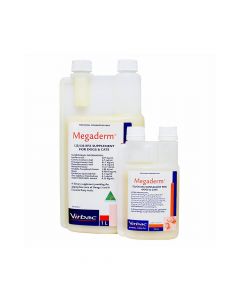Get $10 Off Your First Order! *
Sign up for our newsletter to get first access to our biggest sales, giveaways, and announcements!

Omega-3 fatty acids help reduce inflammation by sending signals to the nervous system. A side effect of inflammation is pain reduction, which is often reduced by this treatment. Inhibiting pain receptors and improving the development of neurons control the primary symptoms. It can be beneficial to reduce swelling and inflammation on an ongoing basis so that vital tissues can continue to function normally.
Body fat is mostly made from other fats or raw materials. That's not so for omega-3 fatty acids. It is necessary to eat these essential fats because the body does not produce them from scratch. Fish, flax seeds, flaxseed oil, leafy vegetables and pasture-raised beef are all high in Omega-3.
Throughout the body, omega-3 fats are an integral part of the cell membranes and impact the function of the receptors. Hormones are made from them, and they regulate blood clotting, artery wall contraction and relaxation, as well as inflammation. As well as binding to receptors, they also function as genetic regulators. Heart disease and stroke can be prevented with omega-3 fats, skin conditions and arthritis may be controlled, and cancer may be protected with omega-3 fats.
Omega 6 is often too high in dogs' diets. Omega 6 is abundant in industrial meats and processed foods that dogs eat. Omega 6 can cause chronic inflammation in dogs, resulting in diseases such as:
The good news is that Omega 6 and Omega 3 work together, so Omega 6 isn't technically bad for dogs, only that it needs to be consumed in moderation and balanced with Omega 3.
Omega oil for dogs is derived most easily from fish oils, although it can come from other sources as well. Another excellent source is green-lipped mussels.
Dogs need EPA and DHA in their diet to be healthy. Dogs' immune systems are supported by EPA's anti-inflammatory properties. Healthy eyes, brains, and nervous systems require DHA.
EPA and DHA are known to have the following benefits:
Fish oil is a great supplement for your dog's diet. Cardiovascular disease can be prevented with fish oil. Itching and skin conditions may also be reduced, as well as a silkier coat. It can also relieve joint pain and allergies. As a result, they are more likely to be able to fight cancer and have a stronger immune system.
Omega 3 fatty acids are essential for pets, and fish oil can provide them. Supplementing with fish oil may become part of a long-term plan depending on the individual's general health and diet. Your dog's diet may gain a temporary nutritional boost from these treats.
The benefits of fish oil for dogs extend throughout their lifetimes as well. DHA, a component in omega-3 fatty acid, aids in the proper brain and eye development of puppies. Additionally, DHA may enhance cognitive function in older dogs with canine cognitive dysfunction. Canine arthritis and chronic kidney disease have been shown to benefit from omega 3 fatty acids.
Talk to your veterinarian before supplementing your dog's diet with fish oils, as with anything affecting their health.
© 2022 DRCARL.COM.AU PTY LTD | Tel: 1800 DR CARL (1800 372 275) | International Clients: +61 7 5476 5468